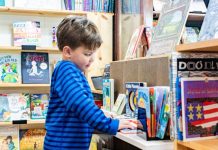
By Chelsea Royer

As a member of My TOWN Coalition, I sat down with a leadership class at Hoquiam High School to talk about substance use and prevention.
I asked the students “what do you wish your parents knew about teenage substance abuse?” These are kids that experience peer pressure and see fellow students who battle substance abuse issues. Some of their responses might surprise you; however, I think this is a good reminder that teenage drug use can affect anyone and the best cure is prevention.
So parents – here is a list of 10 things kids wish you knew. Take this list and talk with your teen. Bring up a conversation. Ask your kid to rate you when it comes to these topics. Are you knowledgeable? Have you been blind to some issues? The goal is to start a conversation.
1. When kids are doing drugs, it isn’t always obvious.
If a teenager is using substances, they may be telling parents they are hanging out with a set of friends to “have fun” when really it is just to get high. Some kids you won’t know are abusing because they have what teens call a “perma-high(or constant state of being under the influence). This happens especially with teens that are abusing prescription drugs and when they are frequent users of marijuana.
2. The worst thing you can assume is that it could not happen to your child.
Whether it’s giving into peer pressure or caving to abuse for deeper reasons, it doesn’t take long for a teen to get hooked. “Role-model” kids can become unintentionally reliant on pain medication after an injury, leaving parents unsuspecting of their addiction. Many parents have a blind spot when it comes to their teen. They seem to often think, “it couldn’t happen to my child.” But it can.
3. Parental discipline is important.
We hear about drugs a lot in school, but not as much at home. Many parents probably just assume that their kids should know better or that it is a “right of passage.” With many kids we know of who use, there often isn’t consistent follow-through at home with discipline or consequences. We wish the parents were more educated on how to handle drug addiction. Many of them don’t know how to deal with their kid abusing substances. Parents should be more involved in the discussions their kids are having about substances in school and maybe then discipline and communication would improve.

4. Joking about marijuana sends us mixed messages.
We are told, all the time in school, about how bad marijuana is for teens. But many of us hear our parents joke about marijuana and how fun it was to smoke when they were in high school or college. It sends mixed messages about how seriously we are supposed to take this substance.
5. Access to drugs and other substances is easy.
Most of us know people who either abuse substances or have tried them. It’s easier for teens to get ahold of drugs than many parents realize. Don’t just assume that if you told your child to stay out of your liquor/marijuana/prescription medications that they will. The major access point for substances is from home.
6. Underage substance use doesn’t happen at either extreme.
Some parents have blinders on and think that substance use/abuse never happens in high school, while some think every teen is using drugs. There needs to be more of a balance in perspective in these cases – somewhere between acknowledging that it happens and not micromanaging.
7. Some kids act different when their parents are around.
We’ve seen kids act like they’re “good” kids in front of their parents, but when they are with friends, they are partying or using substances. Their parents don’t have a clue. Some kids are really great at hiding their substance use and behaviors associated with it.
8. We wish parents knew more about substances.

Often, parents don’t know much about substance use, other than that it’s bad for us. We’d like to hear more information from our parents and not just from the school system.
9. Peer pressure can be a good thing!
We all know that negative peer pressure can do an awful lot of damage, but positive peer pressure can make a huge impact! It’s important to know who we hang out with – help encourage us to seek friends that are good for our development.
10. Parental input is more important than many parents realize.
Ultimately, parental guidance is important and valued, even if not always appreciated. Especially for our peers who are struggling, we really do want and need parental input in our lives. What you say does matter.
We all know that being a parent doesn’t come with a manual, and parenting is more than just a list of what to do or not to do especially when it comes to substance use. Implementing something as simple as family meals a few times a week can greatly help your prevention efforts as you take the time to connect with your teen. Asking questions is a great way to stay informed, become more familiar with your child, and learn about what impacts their life. A great way to begin would be to print off this list and ask your child what they think about the ten points. Ask about their opinions and how they feel you are doing when it comes to these 10 areas regarding substance use.
For current issues and topics related to My TOWN Coalition, follow their Facebook page.












































